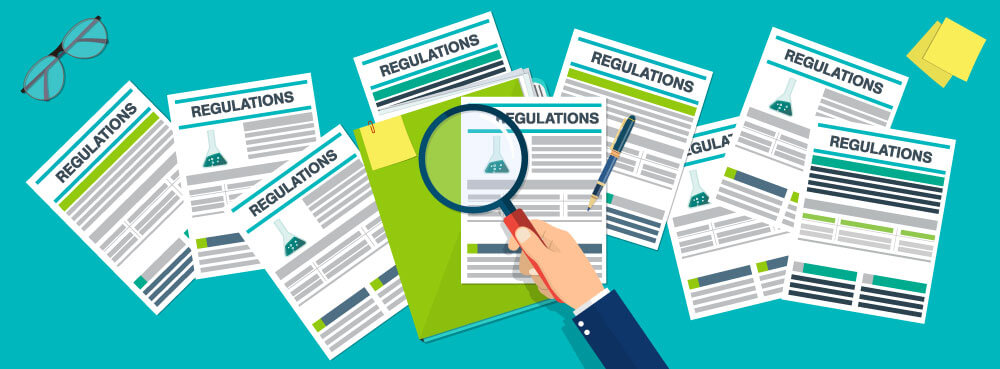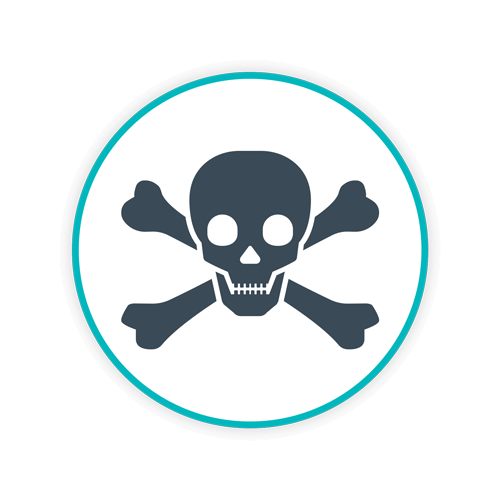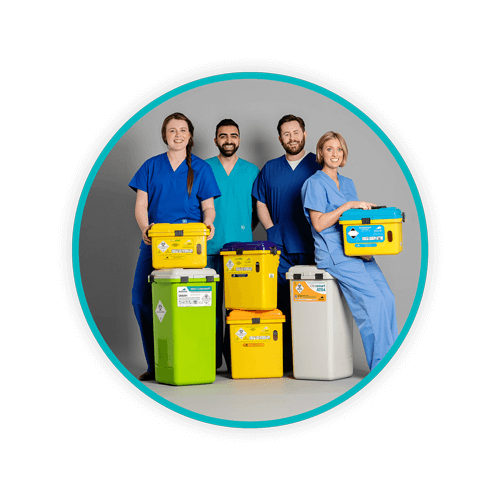What Is POPs Waste?

Are you aware that some of the most toxic and long-lasting chemicals in the world could be hiding in your seat?
Persistent Organic Pollutants (POPs) are precisely what they say on the tin – persistent. In fact, they’re nearly impossible to get rid of and pose significant environmental and health risks. This guide to POPs waste disposal will help you understand what POPs waste is, where it’s found (Spoiler Alert: It’s not only in seats), and how to ensure compliance.
TOPICS WE WILL COVER:
2 / What Are Persistent Organic Pollutants (POPs)?
4 / How to Know if Your Waste Contains POPs
5 / What Is the Guidance for POPs Waste?
6 / How to Dispose of POPs Waste
7 / Ensure Compliance with Your POPs Waste
What Is POPs Waste?
POPs waste refers to any discarded items containing Persistent Organic Pollutants (POPs) – chemical compounds that persist in the environment for a long time, refusing to break down.
Not only do they outstay their welcome, but these substances are highly mobile and capable of spreading through air, water, and biological systems, which is problematic because even in small concentrations, they’re harmful.
Now we know the question on your mind right now… What is the EWC code for POPs waste? Somewhat ironically, given their harmful nature, there’s no specific European Waste Catalogue (EWC) code for POPs, but EWC code 20 03 07 is used to classify waste upholstered domestic seating containing Persistent Organic Pollutants (POPs). This code must be displayed on your Waste Transfer Notes.
What Are Persistent Organic Pollutants (POPs)?
 Persistent Organic Pollutants (POPs) are man-made chemicals that break down slowly and build up in living organisms. They are often unintentionally released into the environment during industrial processes or present in products such as flame retardants, pesticides and electrical components.
Persistent Organic Pollutants (POPs) are man-made chemicals that break down slowly and build up in living organisms. They are often unintentionally released into the environment during industrial processes or present in products such as flame retardants, pesticides and electrical components.
POPs are toxic chemical substances that persist for long periods of time and can become widely distributed geographically if not disposed of properly; POPs pose a danger to the environment, wildlife, and human health.
Types of POPs include:
- Polychlorinated biphenyls (PCBs): Used in electrical equipment
- Dioxins and furans: Byproducts of combustion
- Brominated flame retardants (PBDEs): Found in foams, plastics and textiles.
Even when no longer in use, these chemicals continue to pose a threat, making correct segregation and safe disposal a legal and environmental imperative.
Examples of POPs Waste
As the old saying goes, ‘not all domestic seating is created equally,’ or something like that… this is true in the case of POPs waste. The Environment Agency conducted an investigation, which revealed the presence of POPs and other hazardous chemicals embedded within the foam of upholstered seating.
Whilst a lot of furniture, and particularly imported or older furniture, may contain POPs, not all of it does. POPs can also be found in waste electrical and electronic equipment (WEEE).
Domestic seating items that may contain POPs:
- Sofas
- Sofa beds
- Armchairs
- Kitchen and dining room chairs
- Stools and footstools
- Home office chairs
- Futons
- Bean bags, floor and sofa cushions
This includes any part made of or containing leather, synthetic leather, other fabric, or foam.
Domestic seating unlikely to contain POPs:
- Items that are not upholstered, without cushions
- Deckchairs
- Waste from manufacturing new domestic seating (with evidence of no POPs)
Note: Mattresses, curtains, blinds and beds are not considered domestic seating and are not part of this guidance.
And as noted earlier, POPs aren’t limited to seating alone.
Waste electrical and electronic equipment (WEEE) that may contain POPs:
- Office equipment (e.g. photocopiers, printers)
- Printed circuit boards
- Cables and granulated cable plastics
- Plastic cases from display devices (e.g. flat panel displays, cathode ray tubes)
How to Know if Your Waste Contains POPs
 Whilst it’s unlikely that the majority of the waste items produced in your organisation contain POPs, you must demonstrate that it doesn’t.
Whilst it’s unlikely that the majority of the waste items produced in your organisation contain POPs, you must demonstrate that it doesn’t.
This can be achieved through:
- Chemical testing of materials.
- X-Ray Fluorescence (XRF) scanning for bromine in foams and coatings.
- Documentation review, including Material Safety Data Sheets (MSDS), import records or supplier declarations.
If you know when an item was manufactured, it’ll help you determine if it contains POPs. UK manufacturers stopped using POPs by 2012, but imported goods continued to contain them until 2019.
What Is the Guidance for POPs Waste?
As of January 1st 2023, the Environment Agency updated its guidance to better reflect the serious risk posed by POPs. This updated legislation states that items containing POPs cannot be safely disposed of in general waste or landfills. This now means that all items containing POPs should be treated as a separate waste stream and sent for incineration.
POPs waste must be:
- Stored separately from other waste streams.
- Clearly labelled and segregated from the point of generation.
- Collected and transported by a licensed hazardous waste carrier.
- Disposed of through incineration at facilities permitted to manage POPs waste.
Mixing POPs waste with other waste streams or disposing of it incorrectly is a serious regulatory breach and can result in penalties, fines and even criminal charges. Other consequences of non-compliance include the harmful effects these substances can have on human health, wildlife and the environment.
How to Dispose of POPs Waste
The safe and compliant disposal of waste containing POPs can be summarised in five simple steps:
- Step 1: Identify and assess items suspected to contain POPs.
- Step 2: Segregate and store them safely with appropriate signage.
- Step 3: Use authorised hazardous waste carriers for collection and transport.
- Step 4: Ensure final disposal is through incineration at a facility licensed for POPs.
- Step 5: Maintain detailed records for audit and compliance purposes.
Ensure Compliance with Your POPs Waste
With the right support and systems in place, compliance doesn’t have to be complicated.
At Sharpsmart, we help healthcare providers navigate waste regulations and offer a full range of healthcare waste services, including the transportation and disposal of hazardous waste, as well as training and educational materials to help your staff understand the best practices in healthcare waste management.
Don’t leave the safety of your staff, patients, or the environment to chance – partner with Sharpsmart to ensure that your POPs waste is handled with the utmost care. Whether you’re upgrading your seating or conducting a site audit, we’re here to support your environmental and compliance goals.
Contact us today to learn more about our hazardous waste disposal services and how we can help you create a safer and more compliant waste management system for your facility.
Let's Talk!
Your time is valuable, and we don’t want to play hard to get. You can either phone us directly on the details listed on our contact page, or feel free to fill out this short form and one of our team members will get back to you as quickly as possible.

